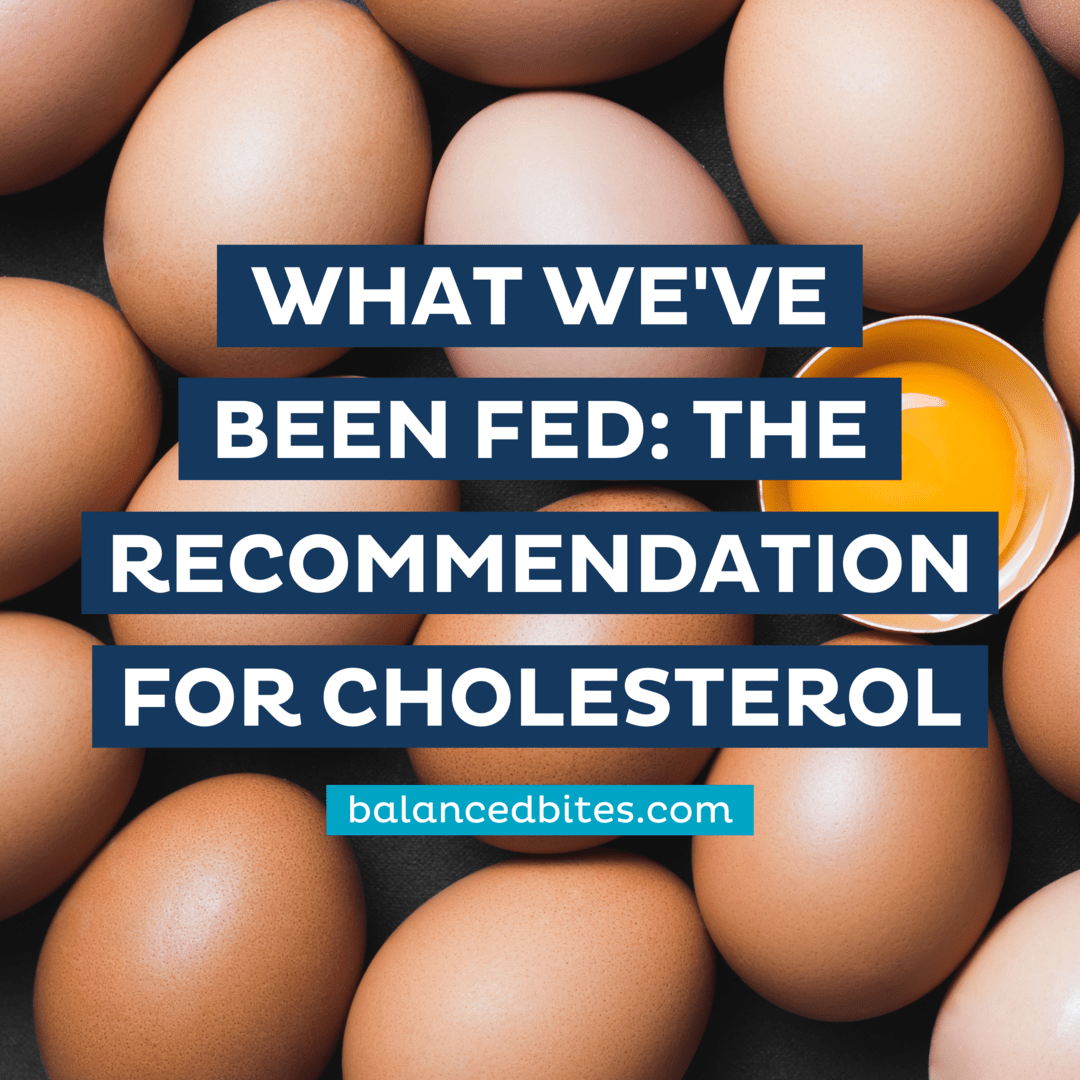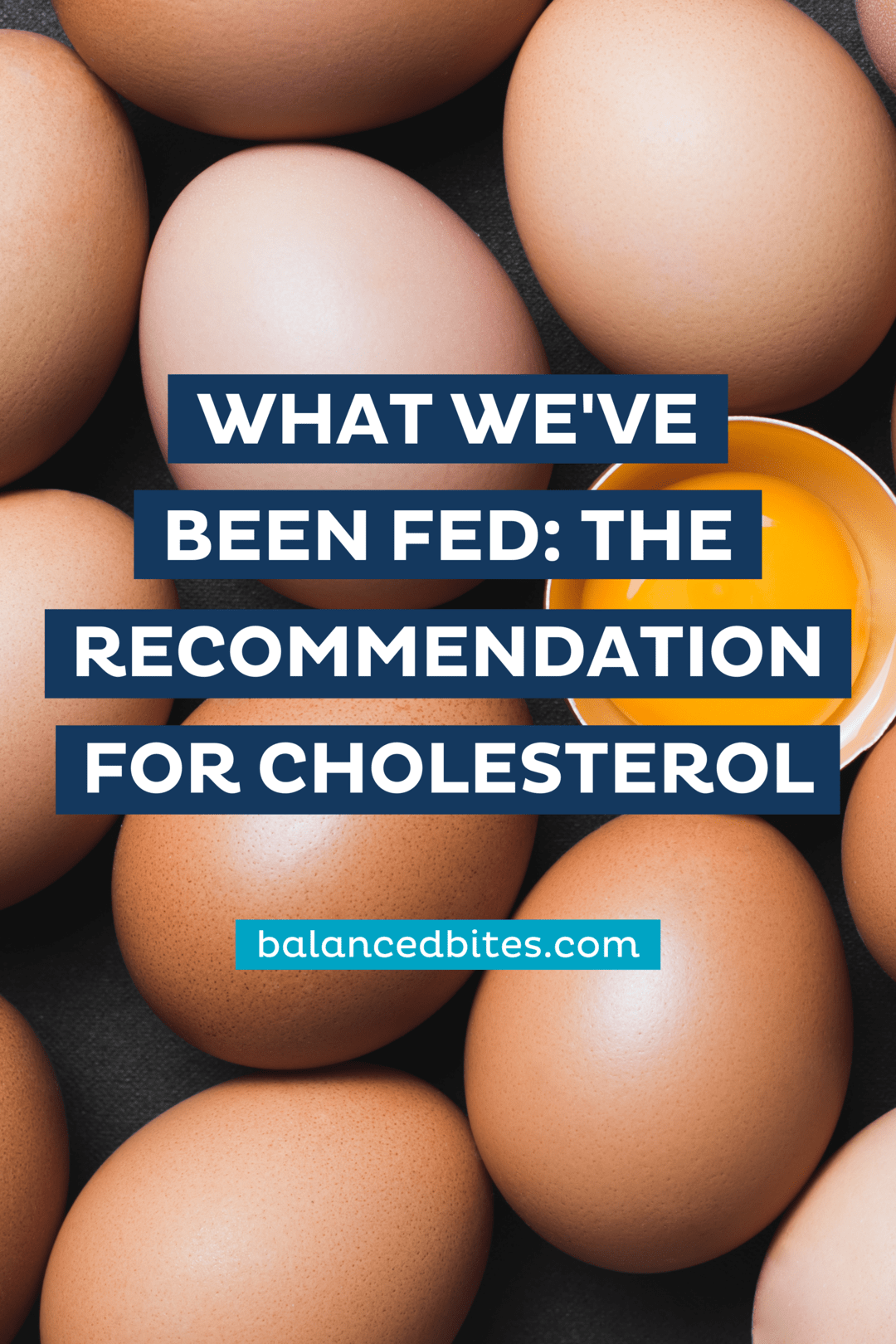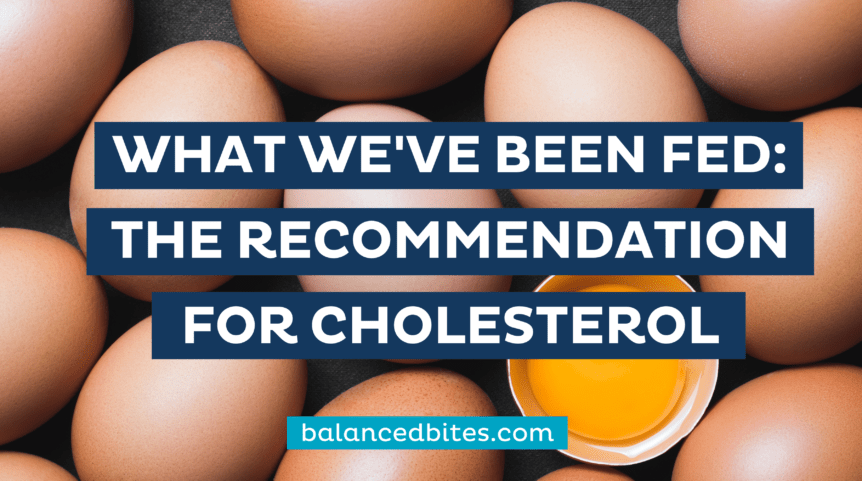In this series, I'm sharing some excerpts from my book, “Practical Paleo” with you.
You may or may not choose to follow a paleo style of eating, it isn't required to be healthy.
But, many of you have told me you've benefitted from eating paleo for a short or long period of time, so these posts will explain more of the premise behind paleo eating for those curious.
Further, while I don't currently educate publicly about the paleo diet, you can always read a lot more and get over 100 easy paleo recipes in “Practical Paleo.”
Here's what the USDA has to say about Cholesterol in our diet…
“Individuals should eat as little dietary cholesterol as possible while consuming a healthy eating pattern.”
Although the 2015 Guidelines no longer recommends limiting dietary cholesterol to 300 mg per day, the idea that cholesterol is bad for your health remains pervasive—in fact, the government itself spread fear of cholesterol in the previous editions of the Guidelines.
The fear of dietary cholesterol is based on the notion that cholesterol in the bloodstream causes heart disease, and therefore by avoiding dietary cholesterol, we can avoid heart disease. The few studies that introduced this idea are problematic, however. They were primarily based on research done on rabbits, whose natural diet does not include cholesterol-containing foods! How can we expect human cholesterol metabolism to mimic that of a rabbit that isn’t supposed to eat cholesterol in the first place? Studies that are more reliable show that dietary cholesterol raises the level of cholesterol in the bloodstream by less than 1 percent. In other words, eating cholesterol doesn’t raise the level of cholesterol in your blood.
While the idea that dietary cholesterol is unhealthy was pushed as truth as early as the 1950s in an effort to sell more factory-made vegetable oil products, it wasn’t until more recently that we were inundated with frightening claims about the cholesterol in real, whole foods. A 1984 Time magazine article entitled “Hold the Eggs and Butter” was among the most influential pieces of propaganda that molded the modern food landscape that we know today. The article claimed that “cholesterol is proved deadly, and our diet may never be the same.” But it went on to say:
For decades, researchers have been trying to prove conclusively that cholesterol is a major villain in this epidemic [of heart disease]. It has not been easy. Cholesterol is, after all, only one piece in a large puzzle that also includes obesity, high blood pressure, smoking, stress, and lack of exercise. All of these play their part in heart disease “like members of an orchestra,” explains pathologist Richard Minick of the New York Hospital-Cornell Medical Center. . . . Despite its bad reputation, cholesterol is essential to life: it is a building block of the outer membrane of cells, and it is a principal ingredient in the digestive juice bile, in the fatty sheath that insulates nerves, and in sex hormones such as estrogen and androgen.
Even within the article itself, the facts about cholesterol contradict the title and claim that it’s bad for you. Unfortunately, what people remembered were headlines and cover images like the one used with the article—a plate of eggs and bacon arranged to form a frowning face. The biology and the science, or lack thereof, behind the idea became secondary to the striking image, and the article created a massive fear of dietary cholesterol and reinforced the idea that heart disease risk is drastically increased when blood levels of cholesterol are high.
There is just one problem. As physician Mike Eades has said, “Only about half the people who have heart attacks have elevated cholesterol levels.” The Time article itself stated, “The experts were still not quite able to pin the blame on cholesterol, however. Explains Fred Ma!son, a leading researcher at the University of California at San Diego, ‘We were missing a key piece of evidence: No one had ever shown that reducing the level of cholesterol in the blood did any good.’”

The entire country, for better or worse and despite conflicting ideas about cholesterol and heart health, was encouraged to stop eating natural foods like butter, cream, egg yolks, and fatty meats—all based on science that didn’t exist. And we bought it hook, line, and sinker.
Egg substitutes appeared on the market, and eggs were made out to be bad for us, even though they are rich in essential nutrients, including choline, selenium, vitamin B2, and vitamin B12.
Finally, the 2015 Dietary Guidelines have acknowledged that there’s no need to fear dietary cholesterol. But they still recommend avoiding it because cholesterol tends to be found in the foods that also have saturated fats. Speaking of which . . . I just covered this last week!
I fully recognize that there are certain conditions for which a prescription or medical intervention may be necessary and even lifesaving. Most chronic conditions, however, are rooted in our overall level of immune health, which is directly affected by food. These conditions can and will be improved by dietary and lifestyle changes. So how can we circle back toward the idea that health is a natural state for humans and that relying on medications to relieve symptoms is not usually a real solution?
While we’ve forgotten what “real food” is over the last few decades, there is hope. Although the low-fat and low-cholesterol mentality still has a stronghold in conventional nutritional wisdom, mainstream media outlets like Time magazine have retracted previous statements against dietary cholesterol and fat. The public is beginning to question conventional wisdom and recognize that doctors may not be the best source of information on nutrition. From where I stand, this palpable shift has made it easier to explain that butter is healthy while Crisco is not.
People are beginning to realize that they are no longer destined to suffer from diseases—or even minor ailments—that are caused by modern food and unhealthy lifestyles. We have found a better way. I want to share with you that we can indeed return to food that comes from properly raised animals and well-tended plants.
You don’t have to rely on factory-derived, packaged calories stamped with unfounded health claims that are nothing more than marketing spin. You can find extraordinary health in beautifully simple, unprocessed, whole foods.

If you missed the intro to this series, you can find it here. The rest of the series can be found here:


Comments 1
I really like what you’ve wrote about the correlation of eating eggs and cholesterol. In my culture , it is customary to have eggs for breakfast among other things. I will definitely be sharing your post and blog to them so that they can follow your advice and maybe understand better what’s going on.